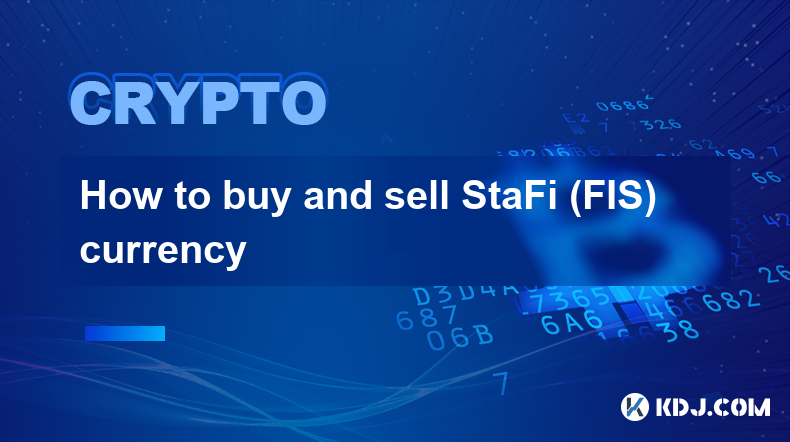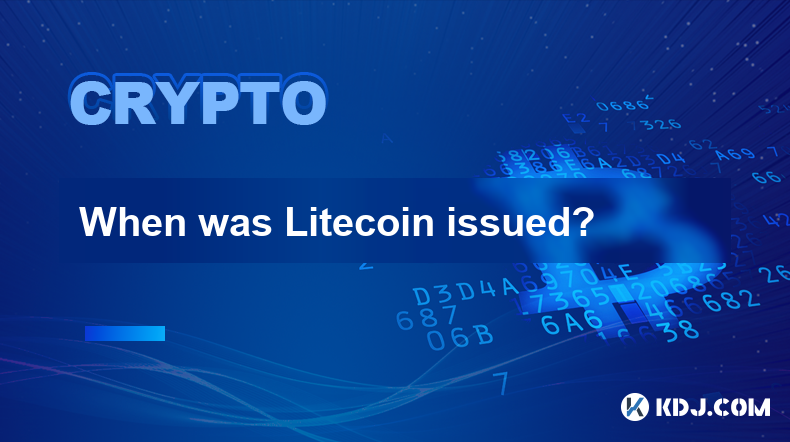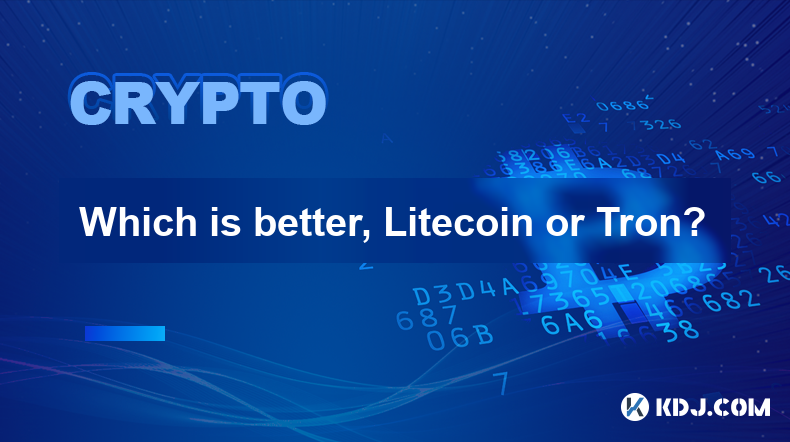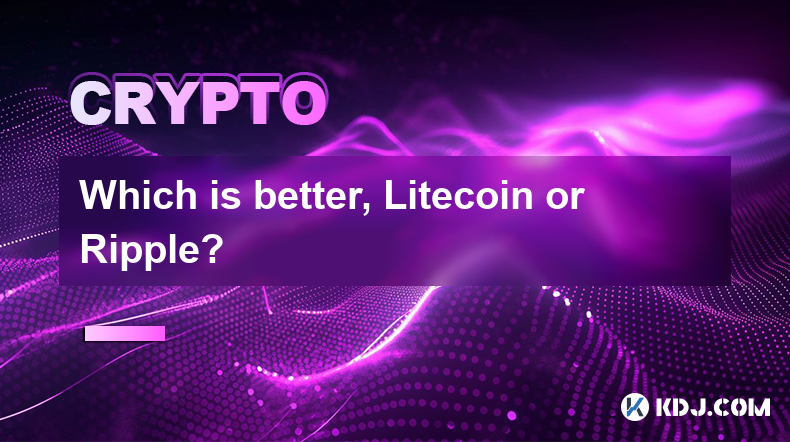-
 Bitcoin
Bitcoin $97,762.2588
-1.47% -
 Ethereum
Ethereum $2,782.9554
0.21% -
 XRP
XRP $2.5284
-2.09% -
 Tether USDt
Tether USDt $1.0004
-0.01% -
 Solana
Solana $205.2002
-1.71% -
 BNB
BNB $572.0088
-1.85% -
 USDC
USDC $1.0000
0.02% -
 Dogecoin
Dogecoin $0.2657
-1.17% -
 Cardano
Cardano $0.7574
1.20% -
 TRON
TRON $0.2263
1.64% -
 Chainlink
Chainlink $19.7380
-3.46% -
 Avalanche
Avalanche $27.1526
2.90% -
 Sui
Sui $3.5982
5.55% -
 Stellar
Stellar $0.3423
-1.33% -
 Hedera
Hedera $0.2531
-0.87% -
 Toncoin
Toncoin $3.8514
0.74% -
 Shiba Inu
Shiba Inu $0.0...01628
4.08% -
 UNUS SED LEO
UNUS SED LEO $9.8093
-0.60% -
 Hyperliquid
Hyperliquid $26.1826
2.79% -
 Litecoin
Litecoin $105.1663
3.37% -
 Bitget Token
Bitget Token $6.5511
1.06% -
 Polkadot
Polkadot $4.7617
-1.39% -
 Bitcoin Cash
Bitcoin Cash $333.5942
0.01% -
 Ethena USDe
Ethena USDe $0.9997
-0.01% -
 MANTRA
MANTRA $5.8114
-2.30% -
 Uniswap
Uniswap $9.3545
2.46% -
 Dai
Dai $0.9999
0.03% -
 Ondo
Ondo $1.4348
6.60% -
 Pepe
Pepe $0.0...01033
2.08% -
 Aave
Aave $277.3448
5.83%
How to buy and sell StaFi (FIS) currency
By understanding the role and usage of StaFi (FIS) tokens in the blockchain ecosystem, users can effectively buy, sell, and manage their FIS holdings through reputable cryptocurrency exchanges.
Jan 04, 2025 at 03:19 am

Comprehensive Guide to Buying and Selling StaFi (FIS) Currency
Key Points:
- Understanding the role of FIS token in the StaFi ecosystem.
- Choosing a reputable cryptocurrency exchange to facilitate transactions.
- Step-by-step instructions for purchasing and selling FIS tokens.
- Exploring alternative methods for acquiring and disposing of FIS holdings.
Understanding StaFi (FIS) Token
StaFi (FIS) is the native token of the StaFi protocol, a decentralized platform that allows users to stake their crypto assets without losing liquidity. By staking their tokens on StaFi, users can generate rewards while maintaining the ability to trade or use those tokens in other DeFi applications.
FIS plays a crucial role in the StaFi ecosystem, serving as:
- Governance token: Holders of FIS can participate in decision-making processes related to the protocol's development and governance.
- Liquidity management token: FIS enables users to access liquidity for their staked assets through a range of options, including lending, borrowing, and trading.
- Medium of exchange: FIS can be used to pay for services and purchase products within the StaFi network.
Choosing a Cryptocurrency Exchange for StaFi (FIS)
Selecting a reliable cryptocurrency exchange to buy and sell StaFi tokens is essential for both security and convenience. Consider the following factors when evaluating exchanges:
- Security: Choose exchanges with robust security measures, such as two-factor authentication and cold storage for user funds.
- Liquidity: Opt for exchanges with ample liquidity, ensuring that you can execute trades efficiently and at competitive prices.
- Fees: Compare transaction fees, withdrawal fees, and any other associated costs before choosing an exchange.
- User interface: Consider the user interface and ease of use to ensure a smooth trading experience.
Detailed Steps to Buy StaFi (FIS)
1. Create an Account on a Cryptocurrency Exchange:
- Visit the official website of your chosen exchange and register for an account.
- Provide the necessary personal and contact information, including identification documents for verification purposes.
2. Fund Your Account:
- Deposit funds into your exchange account using supported payment methods, such as wire transfers, credit/debit cards, or crypto transfers.
- Choose a funding method that aligns with your preferred payment options and transaction speeds.
3. Place a Buy Order for StaFi (FIS):
- Navigate to the trading interface and locate the FIS trading pair (e.g., FIS/USDT).
- Select the "Buy" option and specify the amount of FIS you wish to purchase.
- Choose between market orders (immediate execution) or limit orders (execution at a specific price).
4. Verify and Confirm the Order:
- Review the order details, including the price, quantity, and fees involved.
- Confirm the transaction to place the buy order.
5. Track Your Transaction:
- Monitor the status of your buy order through the exchange's order history.
- Once the order is filled, the FIS tokens will be credited to your exchange wallet.
Detailed Steps to Sell StaFi (FIS)
1. Transfer FIS to Your Exchange Account:
- If your FIS tokens are stored in an external wallet, transfer them to your exchange account for trading purposes.
- Follow the instructions provided by the exchange to initiate a withdrawal from your external wallet.
2. Place a Sell Order for StaFi (FIS):
- Navigate to the trading interface and locate the FIS trading pair (e.g., FIS/USDT).
- Select the "Sell" option and specify the amount of FIS you wish to sell.
- Choose between market orders or limit orders, depending on your preferred execution method.
3. Verify and Confirm the Order:
- Review the order details, including the price, quantity, and fees involved.
- Confirm the transaction to place the sell order.
4. Track Your Transaction:
- Monitor the status of your sell order through the exchange's order history.
- Once the order is filled, the proceeds from the sale will be credited to your exchange account.
Alternative Methods to Acquire and Dispose of StaFi (FIS)
Staking on the StaFi Platform:
- Participate in the StaFi protocol by staking your crypto assets and earning FIS rewards in return.
- Visit the StaFi website, connect your wallet, and choose the desired staking options.
Over-the-Counter (OTC) Trading:
- Engage in direct peer-to-peer trading of FIS tokens outside of exchanges.
- Connect with other buyers or sellers through platforms like Discord, Telegram, or dedicated OTC marketplaces.
Liquidity Pools:
- Provide liquidity to FIS trading pairs on decentralized exchanges (DEXs).
- Earn rewards and trading fees by contributing your FIS tokens to liquidity pools.
FAQs:
What is the minimum amount I can buy or sell on StaFi (FIS)?
The minimum amounts for buying or selling FIS vary depending on the chosen exchange. Check the specific trading pair to determine the minimum trade sizes.
Are there any withdrawal fees for FIS transactions?
Yes, most cryptocurrency exchanges charge withdrawal fees for FIS transactions. The withdrawal fee varies depending on the exchange and the payment method selected.
How do I store my StaFi (FIS) tokens securely?
You can store FIS tokens in hardware wallets, software wallets, or on a reputable exchange's platform. Hardware wallets offer the highest level of security, while software wallets provide convenience and accessibility.
Disclaimer:info@kdj.com
The information provided is not trading advice. kdj.com does not assume any responsibility for any investments made based on the information provided in this article. Cryptocurrencies are highly volatile and it is highly recommended that you invest with caution after thorough research!
If you believe that the content used on this website infringes your copyright, please contact us immediately (info@kdj.com) and we will delete it promptly.
- Qubetics, XRP, and VeChain: The Crypto Performers to Watch in 2025
- 2025-02-05 18:51:01
- Dreamcars: Revolutionizing Luxury Car Ownership through Fractional Investing
- 2025-02-05 18:51:01
- Intchains Group Limited to Present at the “Digital Assets 2025: To Bitcoin and Beyond” Virtual Conference
- 2025-02-05 18:51:01
- Crypto.com Plans ETF Filing Based on Cronos (CRO) Token, Aims to Expand Platform into a Full Financial Services Hub
- 2025-02-05 18:51:01
- TRUMP Coin (TRUMP) and Trump Media & Technology Group Corp. (DJT) See Their Values Significantly Erode Investor Wealth
- 2025-02-05 18:51:01
- Bitcoin (BTC) Price Holds Critical Support Zone as Spot ETF Market Sees First Net Outflow in Days
- 2025-02-05 18:51:01
Related knowledge

When was Litecoin issued?
Feb 04,2025 at 02:36am
When was Litecoin Issued?Key Points:Litecoin's inception and developmentLitecoin's launch date and market dynamicsLitecoin's technical specifications and key featuresLitecoin's Inception and DevelopmentLitecoin, conceived by former Google engineer Charlie Lee, emerged as a fork of Bitcoin in October 2011. Inspired by Bitcoin's revolutionary blockchain t...

Which is better, Litecoin or Tron?
Feb 04,2025 at 10:30pm
Key Points:Similarities between Litecoin and Tron: Decentralized, open-source blockchain platformsDifferences between Litecoin and Tron: Use cases, consensus mechanisms, transaction speedsFactors to consider when choosing between Litecoin and Tron: Investment goals, risk tolerance, specific use casesPotential benefits and drawbacks of Litecoin and Tron:...

How to buy and trade Litecoin?
Feb 04,2025 at 12:24pm
Key Points:Understand the Basics of LitecoinSelect a Suitable Cryptocurrency ExchangeCreate an Account on the ExchangeFund Your AccountPlace a Buy Order for LitecoinSecurely Store Your LitecoinUnderstand Litecoin TradingHow to Buy Litecoin?1. Understand the Basics of LitecoinLitecoin (LTC) is a decentralized digital currency similar to Bitcoin.Created i...

Which has better potential, Litecoin or Ethereum?
Feb 04,2025 at 05:30pm
Key Points:Litecoin and Ethereum are two of the most popular cryptocurrencies in the world.Both coins have their own unique advantages and disadvantages.Litecoin is a faster and cheaper transaction coin than Ethereum.Ethereum is a more versatile platform than Litecoin, and it can be used to create decentralized applications (dApps).Litecoin has a long h...

What country is the founder of Litecoin from?
Feb 04,2025 at 05:55am
Key Points:Litecoin's Founder and the Relationship with Charles LeeLitecoin's Technical Features and Similarities to BitcoinLitecoin's Role in the Cryptocurrency Ecosystem and Its PopularityComparative Analysis of Litecoin with Major CryptocurrenciesLitecoin's Community Involvement and PartnershipsArticle Content:Litecoin's Founder and the Relationship ...

Which is better, Litecoin or Ripple?
Feb 04,2025 at 08:00pm
Key Points:Litecoin: a decentralized, peer-to-peer cryptocurrency based on the Proof-of-Work consensus mechanismRipple: a centralized, enterprise blockchain solution designed for fast and low-cost paymentsDirect comparison of Litecoin vs. Ripple in terms of technology, market capitalization, use cases, and transaction feesPotential benefits and drawback...

When was Litecoin issued?
Feb 04,2025 at 02:36am
When was Litecoin Issued?Key Points:Litecoin's inception and developmentLitecoin's launch date and market dynamicsLitecoin's technical specifications and key featuresLitecoin's Inception and DevelopmentLitecoin, conceived by former Google engineer Charlie Lee, emerged as a fork of Bitcoin in October 2011. Inspired by Bitcoin's revolutionary blockchain t...

Which is better, Litecoin or Tron?
Feb 04,2025 at 10:30pm
Key Points:Similarities between Litecoin and Tron: Decentralized, open-source blockchain platformsDifferences between Litecoin and Tron: Use cases, consensus mechanisms, transaction speedsFactors to consider when choosing between Litecoin and Tron: Investment goals, risk tolerance, specific use casesPotential benefits and drawbacks of Litecoin and Tron:...

How to buy and trade Litecoin?
Feb 04,2025 at 12:24pm
Key Points:Understand the Basics of LitecoinSelect a Suitable Cryptocurrency ExchangeCreate an Account on the ExchangeFund Your AccountPlace a Buy Order for LitecoinSecurely Store Your LitecoinUnderstand Litecoin TradingHow to Buy Litecoin?1. Understand the Basics of LitecoinLitecoin (LTC) is a decentralized digital currency similar to Bitcoin.Created i...

Which has better potential, Litecoin or Ethereum?
Feb 04,2025 at 05:30pm
Key Points:Litecoin and Ethereum are two of the most popular cryptocurrencies in the world.Both coins have their own unique advantages and disadvantages.Litecoin is a faster and cheaper transaction coin than Ethereum.Ethereum is a more versatile platform than Litecoin, and it can be used to create decentralized applications (dApps).Litecoin has a long h...

What country is the founder of Litecoin from?
Feb 04,2025 at 05:55am
Key Points:Litecoin's Founder and the Relationship with Charles LeeLitecoin's Technical Features and Similarities to BitcoinLitecoin's Role in the Cryptocurrency Ecosystem and Its PopularityComparative Analysis of Litecoin with Major CryptocurrenciesLitecoin's Community Involvement and PartnershipsArticle Content:Litecoin's Founder and the Relationship ...

Which is better, Litecoin or Ripple?
Feb 04,2025 at 08:00pm
Key Points:Litecoin: a decentralized, peer-to-peer cryptocurrency based on the Proof-of-Work consensus mechanismRipple: a centralized, enterprise blockchain solution designed for fast and low-cost paymentsDirect comparison of Litecoin vs. Ripple in terms of technology, market capitalization, use cases, and transaction feesPotential benefits and drawback...
See all articles

























































































